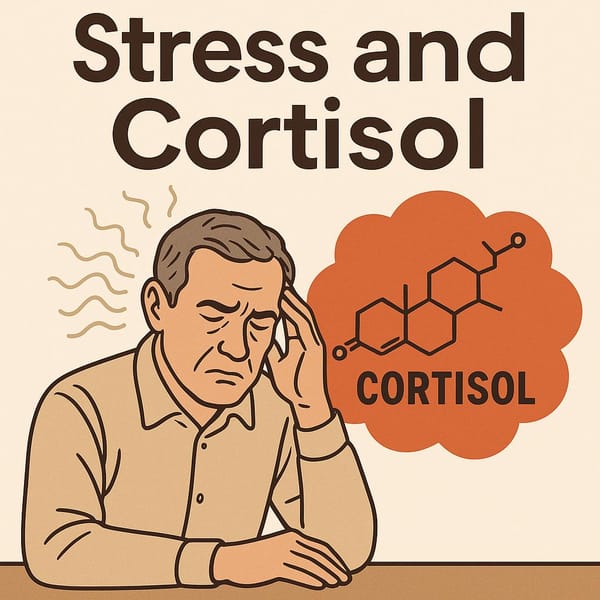Tips for a Good Night’s Sleep for People Aged 50+ for Better Health and Quality of Life
Discover tips for achieving restful sleep for individuals over 50, including dietary choices, environmental adjustments, and exercise routines that enhance overall health and wellbeing.

Introduction
As we enter our 50s and beyond, both our bodies and minds go through noticeable changes. Sleep is one of the most crucial factors in improving overall health. It plays a vital role in physical restoration, brain function, and immune system regulation. However, as we age, falling asleep or staying asleep can become more challenging due to various factors such as hormonal shifts, stress, or underlying health issues.
Insufficient sleep can contribute to long-term health issues, including high blood pressure, diabetes, heart disease, and even depression. This article provides research-supported tips and methods to improve sleep quality for people aged 50+, enabling you to lead a vibrant and energetic life every day.
Why Do People Aged 50+ Often Experience Sleep Problems?
1. Hormonal Changes
As we grow older, our melatonin (the hormone that regulates our circadian rhythm) levels gradually decrease. This reduction can shorten sleep duration or make it difficult to fall asleep. Women going through menopause experience changes in estrogen and progesterone, which can lead to hot flashes, night sweats, and mood swings — all of which affect sleep quality.
2. Underlying Health Conditions
Many people in their 50s and beyond suffer from health conditions that disrupt sleep, such as osteoarthritis, osteoporosis, sleep apnea, depression, and anxiety. These issues can fragment the sleep cycle, leading to frequent nighttime awakenings that make it hard to fall back asleep.
3. Lifestyle Changes
Lifestyle naturally changes with age, such as reduced physical activity, retirement, or spending more time at home. Consequently, the body may not expend enough energy during the day, potentially causing less need for prolonged rest at night and leading to sleep difficulties.
Tips for Better Sleep in Older Adults
To improve sleep quality, consider modifying daily habits and your environment to better meet your body’s needs. Here are some key strategies:
1. Maintain a Consistent Sleep and Wake Schedule
- Set specific times to go to bed and wake up every day, including weekends, to help regulate your circadian rhythm.
- If possible, get some morning sunlight. Natural light helps your body adjust melatonin levels, which supports nighttime sleep.
2. Create a Sleep-Friendly Environment
- Lighting: Keep the bedroom dark enough at night, and use blackout curtains or eye masks if necessary.
- Noise: Use earplugs or consider white noise devices to block out disruptive sounds.
- Temperature: Keep the bedroom cool, ideally between 68–75°F (20–24°C), though personal preferences may vary.
- Bedding: Choose mattresses and pillows that properly support your body, reducing pressure points and enhancing comfort.
3. Exercise Regularly
- Engage in light-to-moderate activities such as brisk walking, swimming, or cycling for at least 30 minutes a day, 5 days a week. This aids in falling asleep faster and sleeping longer.
- Avoid heavy exercise 2–3 hours before bedtime, as it may stimulate your body and make it harder to fall asleep.
- If time is limited, break up exercise into shorter sessions throughout the day, such as a 10-minute post-lunch walk and 10 minutes of stretching in the evening.
4. Nutrition and Nutrients That Promote Sleep
- Melatonin: Naturally found in cherries, almonds, and sesame seeds. Consult a doctor if you’re considering melatonin supplements.
- Magnesium: Crucial for muscle and nerve relaxation. Rich sources include leafy greens, whole grains, nuts, and seeds.
- Protein: Opt for high-quality protein like fish, eggs, soy, or lean meats to support muscle mass and immune function.
- Limit Caffeine and Alcohol: Consuming more than 200–300 mg of caffeine per day or drinking it close to bedtime can disrupt sleep. Alcohol may help you fall asleep quickly at first, but it also interrupts sleep later in the night.
5. Stress Management
- Meditation: Practice deep breathing to calm the body and lower sympathetic nervous system activity.
- Yoga and Stretching: Certain poses relieve muscle tension and stimulate the parasympathetic nervous system.
- Journaling: Writing down worries and anxieties can help clear the mind before bed.
- Professional Advice: Seek help from psychologists or psychiatrists for persistent stress or anxiety.
6. Using Technology and Sleep Aids
- Sleep Tracking Apps: Tools like Sleep Cycle, Pillow, or Fitbit can help monitor sleep patterns, aiding in long-term sleep health.
- Assistive Devices: Consider anti-dust mite pillowcases or cooling pillow protectors for added comfort.
7. Avoid Stimuli Before Bed
- Screen Time: Refrain from using smartphones, computers, or tablets at least 30–60 minutes before bedtime to prevent exposure to blue light, which hinders melatonin production.
- Reduce Bright Lights: Turn off overhead lights and use low-watt or warm-toned lamps to signal your body it’s time to wind down.
8. Health Evaluation and Medical Consultation
If you’ve tried adjusting your lifestyle and environment but still experience sleep issues, it might indicate a medical condition like sleep apnea, restless legs syndrome, or severe depression and anxiety. Consult with a healthcare professional for a proper diagnosis and tailored treatment.
In-Depth Behavioral Adjustments
1. Morning Workouts
While exercise can enhance sleep, timing matters. Exercising in the morning or before noon allows your heart rate and blood flow to normalize well before bedtime.
2. Mindfulness and Relaxation
Practicing meditation or prayer before bed can help the mind and body relax, freeing you from the day’s anxiety. For those uncomfortable with religious practices, try mindfulness apps with guided sessions or soothing background music.
3. A Cozy Reading Nook
If you enjoy reading before bed, designate a small space in or near the bedroom with a comfortable chair and soft lighting. Choose light reading materials, such as novels, poetry, or self-improvement books, to help the mind unwind.
4. Sleep Diary
Keep a sleep diary to track issues such as frequent awakenings, muscle spasms, stress levels, nightmares, or disruptive noises. This helps identify specific problems and can be shared with a healthcare professional for more effective solutions.
5. Handling Occasional Sleepless Nights
If you get insufficient sleep on some nights, try not to panic. Instead of relying on coffee or high-caffeine drinks the next day, consider a short power nap (20–30 minutes). This can help reduce fatigue without interfering with your primary sleep schedule.
7 Additional Tips for Deep Sleep
- Gentle Massage: Massaging your feet or using essential oils like lavender or chamomile can soothe the nervous system.
- Low-Frequency Music: Listening to music at 60–80 BPM (similar to a resting heart rate) fosters relaxation and drowsiness.
- Light Evening Meals: Wait 2–3 hours after dinner before going to bed, avoiding high-fat or hard-to-digest meals.
- Limit Afternoon Naps: Keep naps under 30 minutes to avoid disturbing nighttime sleep.
- Aromatherapy: Use essential oils known for relaxation, like lavender, to promote a calming environment.
- Warm Beverages: Opt for caffeine-free herbal teas like chamomile or a cup of warm milk to relax the body and mind.
- Vent Emotions Before Bed: Spend 10–15 minutes reflecting on the day’s events. Write down your concerns and plans to address them later, rather than dwelling on them in bed.
Maintaining Overall Health to Support Sleep
Sleep is just one aspect of overall wellness. For a healthier and longer life:
- Balanced Nutrition: Focus on fruits, vegetables, quality protein, and healthy fats while minimizing sugar and sodium.
- Emotional Wellbeing: Engage in activities you enjoy, such as listening to music, socializing, or exploring art.
- Social Connections: Having supportive networks can reduce the risk of depression and stress.
- Annual Checkups: Regular health screenings can detect potential issues early.
- Oral Health: Pain from dental problems can interfere with sleep.
External Links
- National Sleep Foundation (English)
- World Health Organization (WHO) Guidelines for Senior Health (English)
Conclusion
Sleep is vital at any age, but for those aged 50+, getting a sufficient amount of quality sleep is particularly crucial. It helps maintain the body’s and mind’s equilibrium, influencing immunity, chronic conditions, and overall life satisfaction.
Prioritizing healthy sleep starts with consistent bedtime routines, creating a conducive sleep environment, monitoring diet and drink intake, exercising, and managing stress levels. Annual health checkups can also pinpoint hidden or emerging issues before they escalate.
Most importantly, adequate sleep isn’t just about the quantity of hours but about quality – ensuring the body and mind are fully rested. With better sleep, you’ll wake up feeling refreshed and ready for daily life’s challenges with greater energy and enjoyment.
Scientific ReferencesOhayon MM, Carskadon MA, Guilleminault C, Vitiello MV. Meta-analysis of quantitative sleep parameters from childhood to old age in healthy individuals: Developing normative sleep values across the human lifespan. Sleep. 2004;27(7):1255-1273.National Heart, Lung, and Blood Institute. Healthy Sleep. 2021.Irwin MR. Why Sleep Is Important for Health: A Psychoneuroimmunology Perspective. Annual Review of Psychology. 2015;66:143-172.



